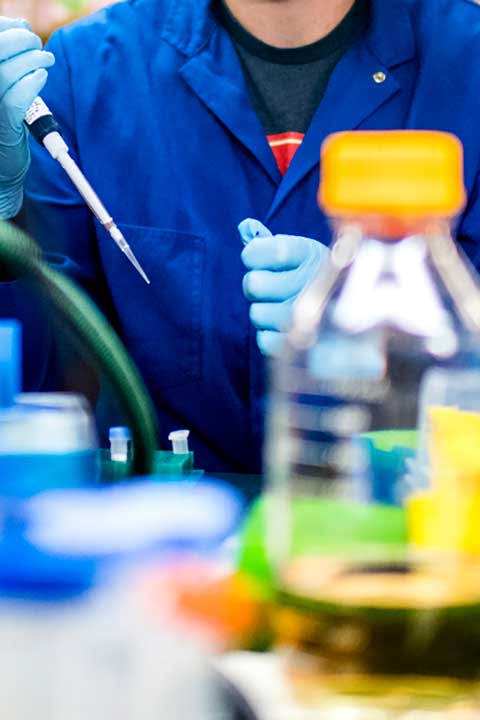
Research
Chemical engineering encompasses a broad range of cutting-edge research. The diverse education that chemical engineers receive allows them to work at the intersection of a variety of different fields, including biology, chemistry, energy, physics, materials science, and other engineering disciplines.
Chemical engineering research at Northeastern is supported by multiple areas: Biomolecular & Biomedical Systems, Complex & Computational Systems, Energy & Sustainability, Engineering Education & Pedagogy, and Materials & Nanotechnology.
The College of Engineering is also home to a National Science Foundation Center for High-Rate Nanomanufacturing, as well as numerous other research centers and institutes to push the boundaries of research.
With a premier location in downtown Boston, the department is perfectly located to take advantage of a wealth of collaborations with other universities, as well as local hospitals, medical centers, and industry.



